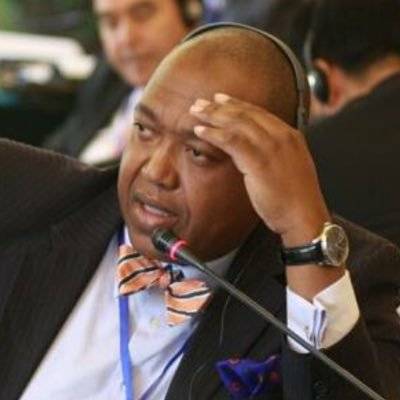There have been a number of significant political events in the Middle East over the past few days. The ongoing protests in Sudan, for example, have claimed the lives of at least 19 people in just over a week. These protests are regarded as a tough test for President Omar Al-Bashir.
Elsewhere, the decision to withdraw US soldiers from Syria has triggered more political activity in the region. Russia and Turkey are hard at work planning for their roles and rearranging their troop deployments after the US withdrawal. Fighters belonging to the People’s Liberation Units (YPG) who have been fighting in Syria and gained significant territorial control, are seeking new alliances as Turkey threatens to push back their military and political gains. The US troops have been essential in assisting the YPG’s fight against Daesh and other insurgents in Syria. Ankara accuses the YPG of coordinating with the PKK to create instability in Turkey, where the Kurdish group is listed as a terrorist organisation. The withdrawal of the US troops will have a negative impact on the YPG’s military campaign in Syria.
However, there is one story which seems to have escaped the attention of many observers and commentators: the demotion of the Foreign Minister of Saudi Arabia, Adel Al-Jubeir. According to Al Jazeera, “A royal decree was issued on Wednesday to demote outgoing chief diplomat Adel Al-Jubeir to the position of Minister of State for Foreign Affairs and named Ibrahim Al-Assaf as his replacement.”
READ: Saudi removes Al-Jubeir in Cabinet reshuffle
This is an extremely crucial turn of events, as it will have an impact on Saudi Arabia’s ability to communicate its foreign relations policies to the world. Al-Jubeir was perhaps one of the most powerful foreign ministers ever employed by Riyadh. He served not only as foreign minister but also as a de facto “chief spin doctor” using his emotionless, soft voice to defend his country’s decisions whenever required. His demeanour resembled that of “a naughty school bully at school who instigated all sorts of shenanigans and yet somehow managed to maintain calm and a look of innocence,” a colleague once said. Such calmness was maintained even in the midst of political chaos and controversy. It fell to Al-Jubeir to try to defend and absolve Crown Prince Muhammed Bin Salman of the murder of Jamal Khashoggi in October. Bin Salman was implicated by the CIA in the agency’s report about the killing. “The leadership of the Kingdom of Saudi Arabia represented by the King and the Crown Prince,” Al-Jubeir told Saudi-owned newspaper Al Sharq Al Awsat, “is a red line, and we will not permit attempts to harm or undermine them.”
In the end, Al-Jubeir appears to have been betrayed by the very regime that he tried so hard to defend. His demotion is seen by most commentators as the need for a scapegoat for the Khashoggi murder and the negative publicity that followed. However, the downgrading from minister to minister of state in the same department might prove to be disastrous for Saudi Arabia. As well as the Khashoggi issue, Al-Jubeir has been a leading talking head in the media to explain Saudi foreign policy on Yemen and the blockade of Qatar. He has also been instrumental in fostering relations with many countries, particularly in Africa. The Kingdom’s foreign policy has involved Al-Jubeir’s personal touch and “deep pocket” relations. When Saudi Arabia, the UAE, Bahrain and Egypt decided to blockade Qatar in June 2017, it was Al-Jubeir who lobbied on the sidelines of the 13th African Union Summit in Addis Ababa for countries to join them.
Saudi Arabia: Govt reshuffle was expected as its four-year term was up
Al-Jubeir was also very active at major international platforms; his departure will be felt keenly, having attended most important conferences around the world selling and explaining his country’s foreign policy, mainly against Iran. He is the only Arab diplomat who managed to counter the charm of Iranian Foreign Minister Mohammad Javad Zarif, who continues to mesmerise audiences wherever he appears. Both Al-Jubeir and Zarif are crowd pullers who can fill conference rooms. Their ability to articulate their policies in English, a skill that King Salman, Bin Salman and Iran’s President Hassan Rouhani lack, made Zarif and Al-Jubeir the most listened to senior officials in the region. Al-Jubeir’s removal from the top foreign relations post in the Kingdom will thus, undoubtedly, have a huge impact.
A change of foreign ministers often indicates an imminent change of foreign policy; is this going to happen in this case? Adel Al-Jubeir has been the face of Saudi Arabia’s much-criticised foreign policy during the most tumultuous political period in the Kingdom’s history. The hope is that his demotion is meant to usher in a new foreign policy trajectory rather than simply protect Bin Salman. Or perhaps his demotion is meant to protect Al-Jubeir himself. Having to communicate a different foreign policy now could not only put him in a very embarrassing position given his robust defence of the current status quo, but also add to the growing mistrust of Saudi Arabia’s foreign relations regime.
The views expressed in this article belong to the author and do not necessarily reflect the editorial policy of Middle East Monitor.

![Saudi Arabian Foreign Minister Adel bin Ahmed Al-Jubeir in Manama, Bahrain on 30 July 2017 [Stringer/Anadolu Agency]](https://i0.wp.com/www.middleeastmonitor.com/wp-content/uploads/2017/07/20170730_2_25014393_24572431.jpg?fit=920%2C670&ssl=1)







